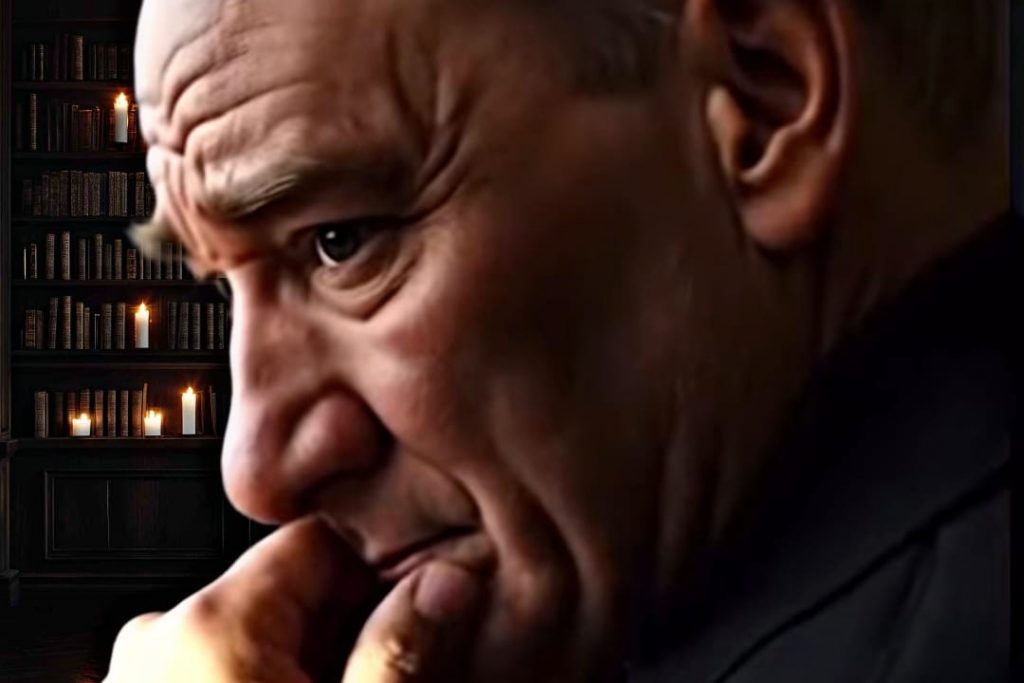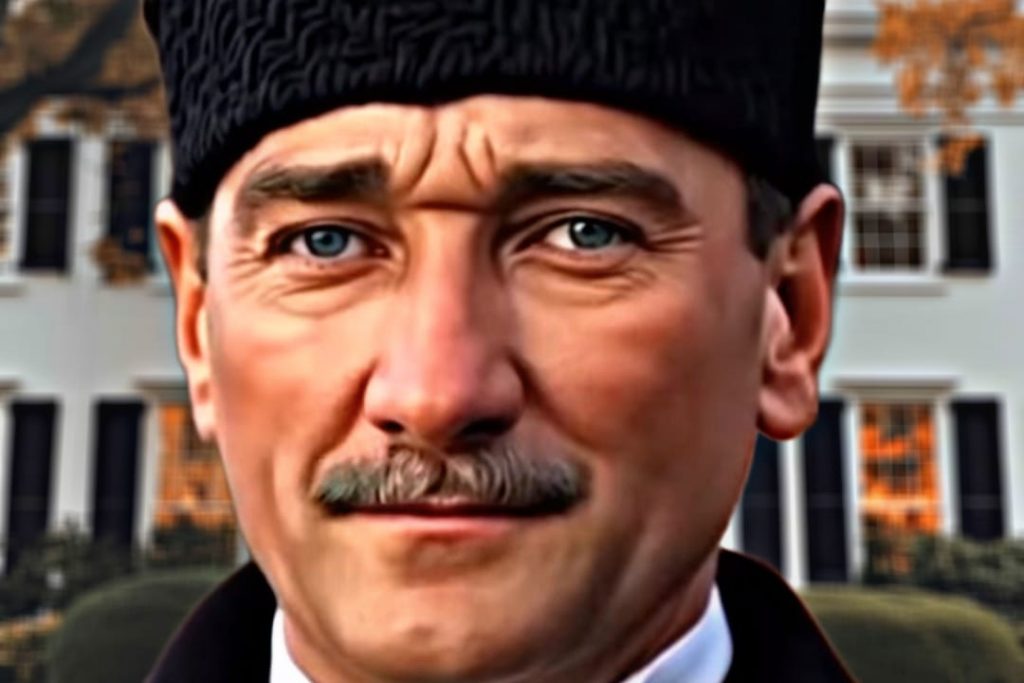Mustafa Kemal Atatürk, the founding father of the Republic of Turkey, is one of the most influential and visionary leaders of the 20th century. His leadership transformed a collapsing Ottoman Empire into a modern, secular, and democratic nation-state. Atatürk’s reforms in politics, society, education, and culture reshaped Turkey into a nation that bridged the East and West, blending tradition with modernization. His vision of a secular, democratic, and progressive Turkey continues to influence the country to this day. This article explores the life, achievements, reforms, and enduring legacy of Mustafa Kemal Atatürk.
Early Life and Military Career of Mustafa Kemal Atatürk
Mustafa Kemal was born on May 19, 1881, in Salonika (now Thessaloniki, Greece), which was then part of the Ottoman Empire. He was the son of a middle-class family, and his early education reflected the traditional values of the Ottoman Empire, but he quickly displayed a keen interest in the military. Atatürk’s early education took place at a religious school, followed by his enrollment in the Military Academy in Istanbul, where he showed exceptional promise. His time at the academy was pivotal, as it set the course for his future as a military leader and revolutionary.
After graduating from the Military Academy in 1905, Mustafa Kemal Atatürk began his military career. His early assignments took him to various regions of the Ottoman Empire, including Syria, Iraq, and Libya, where he gained valuable experience in military strategy and leadership. By 1912, he had risen through the ranks, becoming a captain. During his time in the military, Mustafa Kemal developed a reputation as a brilliant strategist, particularly during World War I, where he rose to national prominence.
World War I and the Gallipoli Campaign

World War I (1914-1918) was a turning point in the history of the Ottoman Empire. The Ottoman Empire, allied with Germany, found itself fighting a losing war on multiple fronts. One of the most pivotal moments in Atatürk’s career occurred during the Gallipoli Campaign (1915-1916), where the Allies attempted to capture Istanbul (then Constantinople) and secure a sea route to Russia. Mustafa Kemal Atatürk, who was serving as a commander of the Ottoman forces, orchestrated a brilliant defense that led to the failure of the Allied forces and the eventual withdrawal of British and French troops. This victory made Mustafa Kemal a national hero in the Ottoman Empire.
The Gallipoli Campaign not only solidified Mustafa Kemal Atatürk reputation as a military leader but also gave him the opportunity to galvanize the Turkish people around the idea of national sovereignty. This event laid the groundwork for his later political leadership and his vision for a sovereign, independent Turkey free from imperialism and foreign domination.
The Fall of the Ottoman Empire and the Turkish War of Independence
By the end of World War I, the Ottoman Empire was in a state of collapse. The Treaty of Sèvres (1920), signed between the Ottoman Empire and the Allied powers, partitioned much of the empire’s territory, and the empire’s sovereignty was essentially dismantled. This treaty was seen as a humiliation for the Turkish people. The situation was further complicated by the presence of foreign forces in Anatolia, and many regions of the empire were being occupied by Greek, French, and British troops.
Mustafa Kemal Atatürk, who had been serving as a military officer in the Ottoman Empire, saw the Treaty of Sèvres as an existential threat to the Turkish nation. In response, he organized a nationalist movement to resist the foreign occupation and restore Turkish independence. Leading this resistance was Mustafa Kemal, who rallied support from Turkish nationalists and military leaders.
In 1919, Mustafa Kemal Atatürk convened the Sivas Congress, where he declared his commitment to Turkish independence and began organizing the Turkish War of Independence (1919-1923). The war was fought against foreign occupation forces as well as against local factions that opposed Atatürk’s vision. Mustafa Kemal Atatürk leadership, military prowess, and ability to unite diverse factions under the banner of nationalism resulted in a resounding victory for the Turkish forces.
In 1922, the Turkish national movement succeeded in defeating the Greek forces and driving out foreign occupiers. The Treaty of Lausanne (1923), signed by Atatürk and international powers, officially recognized the sovereignty of the new Republic of Turkey. On October 29, 1923, Mustafa Kemal Atatürk proclaimed the establishment of the Republic of Turkey and became its first president, marking the end of the Ottoman Empire and the dawn of a new era in Turkish history.
Mustafa Kemal Atatürk Reforms: Transforming Turkey into a Modern Nation-State

Mustafa Kemal Atatürk leadership did not end with the establishment of the Republic. He embarked on an ambitious program of political, social, and cultural reforms aimed at transforming Turkey into a modern, secular, and progressive nation. His reforms are often described as a revolution within a revolution, as they sought to break with centuries of Ottoman traditions and align Turkey with the modern, Westernized world.
Secularization and the Abolition of the Caliphate
One of the most significant reforms implemented by Atatürk was the secularization of Turkish society. He believed that the future of Turkey depended on breaking away from the religious influence that had dominated the Ottoman Empire for centuries. In 1924, Atatürk abolished the Caliphate, which had been a symbol of the unity of the Muslim world, marking the final break with Ottoman religious institutions.
In addition, Mustafa Kemal Atatürk pursued a policy of secular education, separating religious and educational institutions and promoting a modern, scientific curriculum in schools and universities. Religious institutions were placed under government control, and religious attire such as the fez was banned in favor of Western-style clothing. The Diyanet (the Presidency of Religious Affairs) was established to regulate religious practices and ensure that they did not interfere with the secular nature of the state.
Legal and Political Reforms
Mustafa Kemal Atatürk political reforms focused on creating a modern, democratic republic. He introduced a new civil code modeled after the Swiss Civil Code, which replaced the Ottoman legal system based on Islamic law (Sharia). This was a radical change that promoted gender equality and abolished practices such as polygamy. Women were granted the right to vote and participate in elections, a major milestone in Turkey’s modernization process.
Mustafa Kemal Atatürk also introduced the multi-party system in Turkey, although his own party, the Republican People’s Party (CHP), remained dominant for many years. However, the principle of equality before the law became a cornerstone of Turkey’s political system under Atatürk.
Language and Cultural Reforms

Perhaps one of the most symbolic reforms introduced by Mustafa Kemal Atatürk was the language reform, which aimed to modernize the Turkish language and make it more accessible to the masses. Atatürk believed that the Turkish language needed to be purged of Arabic and Persian influences that had accumulated over centuries. The Turkish Language Association (TDK) was established to promote the use of a simplified, Turkic-based language. This reform was part of Atatürk’s broader effort to create a distinct national identity separate from the Ottoman past.
Mustafa Kemal Atatürk also promoted Western-style arts and culture, encouraging Turkish citizens to embrace modern architecture, music, and literature. He was deeply interested in the arts and sciences, and his government funded universities, research institutions, and cultural organizations to ensure Turkey’s intellectual and cultural development.
Economic Modernization
Mustafa Kemal Atatürk recognized that Turkey’s future depended not only on political reforms but also on economic modernization. Under his leadership, Turkey pursued state-led industrialization, with the government investing in infrastructure, factories, and transportation. The Ankara Industrial Plan was introduced to develop new industries, and the government began to focus on building a self-sufficient economy. Mustafa Kemal Atatürk also emphasized the importance of education and the development of human capital as essential components of Turkey’s economic progress.
Mustafa Kemal Atatürk Foreign Policy: Neutrality and Diplomacy
Mustafa Kemal Atatürk foreign policy was driven by the desire to protect Turkey’s sovereignty while maintaining good relations with neighboring countries and major powers. He pursued a policy of neutrality in international affairs, carefully avoiding alliances that could draw Turkey into foreign conflicts. Atatürk’s policy of peace at home, peace in the world emphasized Turkey’s commitment to diplomacy and peaceful coexistence with its neighbors.
One of his major foreign policy successes was the Treaty of Lausanne (1923), which recognized the borders of Turkey and laid the foundation for its future territorial integrity. Mustafa Kemal Atatürk diplomatic efforts also focused on maintaining Turkey’s independence and avoiding external intervention, particularly from the European powers.
Legacy of Mustafa Kemal Atatürk
Mustafa Kemal Atatürk passed away on November 10, 1938, but his legacy continues to shape Turkey to this day. He is regarded as the founding father of modern Turkey and is deeply respected for his role in securing Turkey’s independence and shaping its future. Atatürk’s vision of a secular, democratic, and modern Turkey has influenced successive generations of Turkish leaders and continues to serve as the guiding philosophy for many aspects of Turkish political life.
Mustafa Kemal Atatürk reforms particularly in the fields of secularism, education, women’s rights, and economic modernization were transformative. His leadership helped propel Turkey into the modern world and allowed it to become a secular republic in a region dominated by monarchies and theocratic states. His unwavering commitment to national sovereignty, secularism, and modernity continues to inspire people within and outside of Turkey.
Mustafa Kemal Atatürk image is still visible everywhere in Turkey from the streets named after him to the portraits hanging in government buildings. His principles of Kemalism which include republicanism, nationalism, populism, statism, secularism, and reformism remain a cornerstone of Turkish political ideology. His leadership and vision helped define Turkey’s place in the world and his legacy continues to be revered by millions.
Conclusion
Mustafa Kemal Atatürk leadership was a defining moment in the history of not only Turkey but the entire region. His bold vision and unwavering determination laid the foundation for a modern, secular, and democratic Turkey. His reforms transformed every aspect of Turkish society and left an indelible mark on the country’s culture, politics, and economy. Today, Mustafa Kemal Atatürk legacy remains a guiding light for Turkey as it navigates the challenges of the modern world while preserving the values that Atatürk instilled in the Republic.

